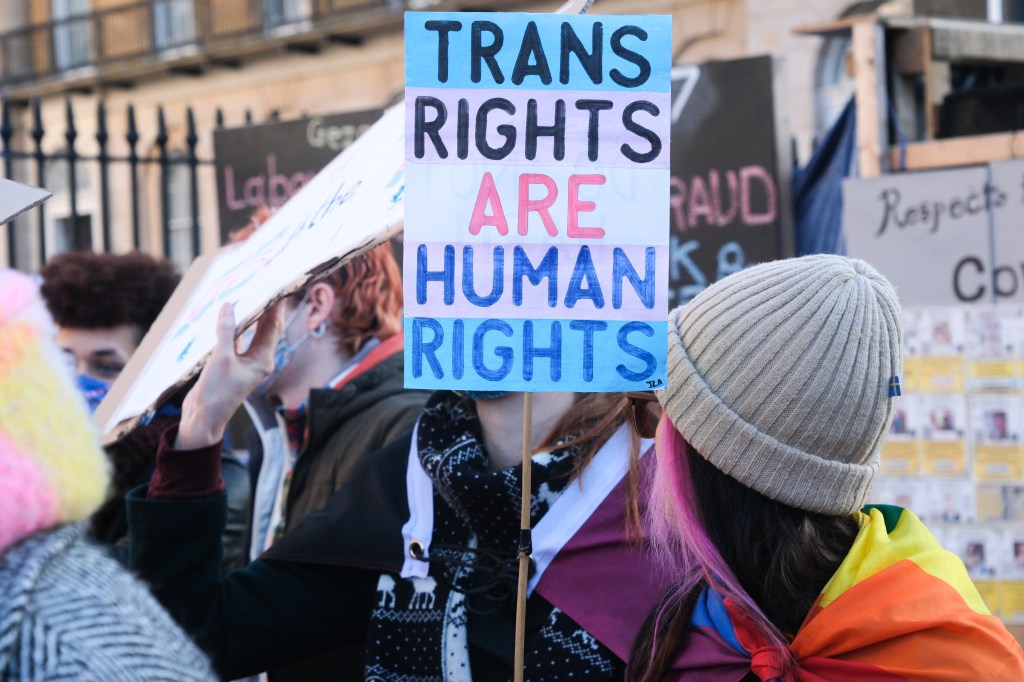Germany passes landmark self identification law: ‘Trans people exist and deserve recognition’

Germany passed a landmark LGBTQ+ law on 12 April (Getty)
On April 12, Germany’s parliament passed a significant ‘self determination law’ making it easier for trans and non-binary people 14 and older to legally change their first name and gender.
Previously, people wanting to have their gender legally recognised had to contend with a 40-year-old ‘transsexual law’ in Germany, which required trans people to obtain assessments from medical experts “sufficiently familiar with the particular problems of transsexualism”.
Justice minister for the Free Democratic Party, Marco Buschmann, previously told German outlet ZDF television on Wednesday (23 August) that he believed that outdated system to be “very degrading”.
“Imagine that you … simply want to live your life and you don’t wish anyone anything bad, and then you’re questioned about what your sexual fantasies are, what underwear you wear and similar things,” he said.
“Now we simply want to make life a bit easier for a small group for which it has great significance.”

The landmark legislation, dubbed the Self-Determination Act, previously spent a year in legal limbo, but has now finally become law, with 374 MPs voting in favour, 251 against and 11 abstaining, and will come into force in November. Approval by the Bundesrat, the upper house of parliament, is not required.
This means that people aged 14 and older will be now able to change their first name and gender entry by making a straightforward declaration to the registry office.
However, the law has stipulations for minors aged 14 and above, requiring them to have the approval of their parents or guardians. If their parents don’t approve, under-18s can ask a family court to overrule them.
Under-14s would require explicit permission from parents or guardians, who would have to make the applications on their behalf.
Cristian González Cabrera, a senior LGBTQ+ rights researcher at Human Rights Watch, said in a statement: “As populist politicians in Europe and beyond try to use trans rights as a political wedge issue, Germany’s new law sends a strong message that trans people exist and deserve recognition and protection, without discrimination.”
Scotland’s gender law reform bill

Similar legislation in the UK has been mired in political wrangling, U-turns, backtracking and significant legal action between the Scottish and UK governments.
Scotland’s similar self-ID legislation, the Gender Recognition Reform (Scotland) Bill, was passed in December 2022 by 86 votes to 39, following years of consultation by the Scottish government.
The bill would amend the Gender Recognition Act 2004 and make it easier for trans people to get a Gender Recognition Certificate (GRC), as well as open up the process to 16 and 17 year olds for the first time.
As in Germany, the law would remove the highly medicalised process trans people have to go through, by taking away the requirement to be diagnosed with gender dysphoria and implement a system of self-ID.
However, Westminster took the highly controversial step of blocking the Scottish gender reform bill using something called a Section 35 order, angering supporters of Scottish independence as well as transgender rights, and leading to a high-profile court battle, which the UK government won.

